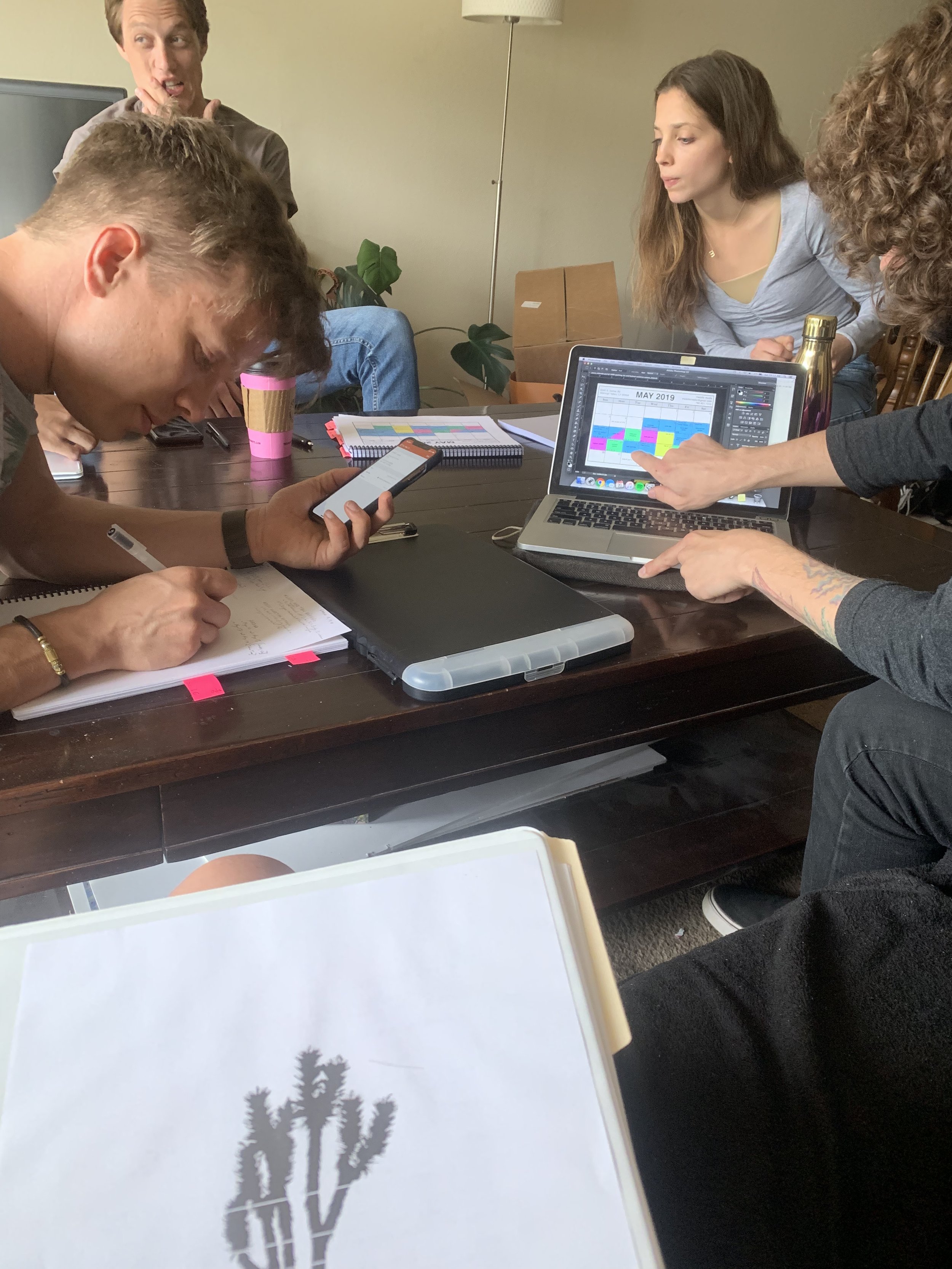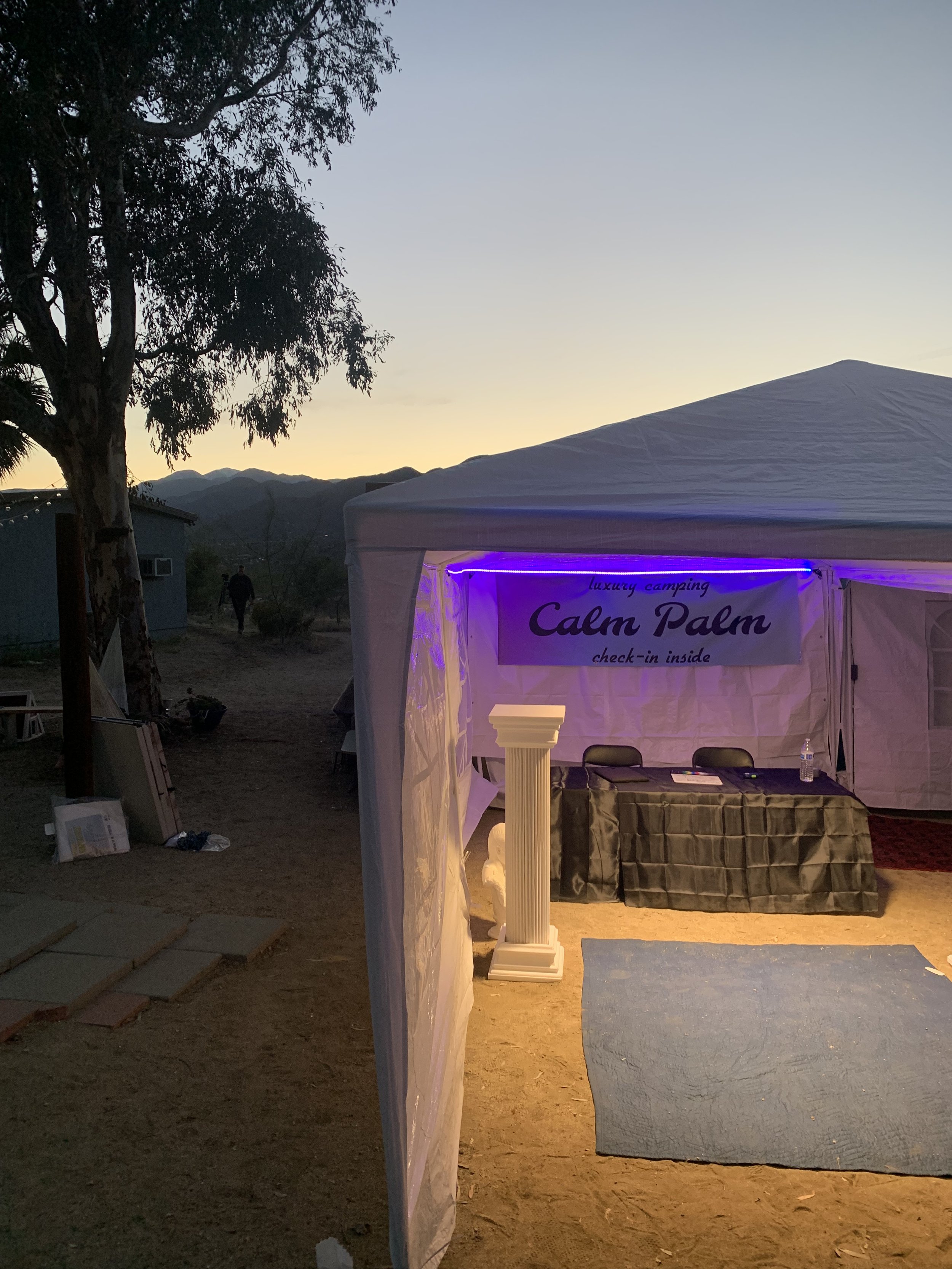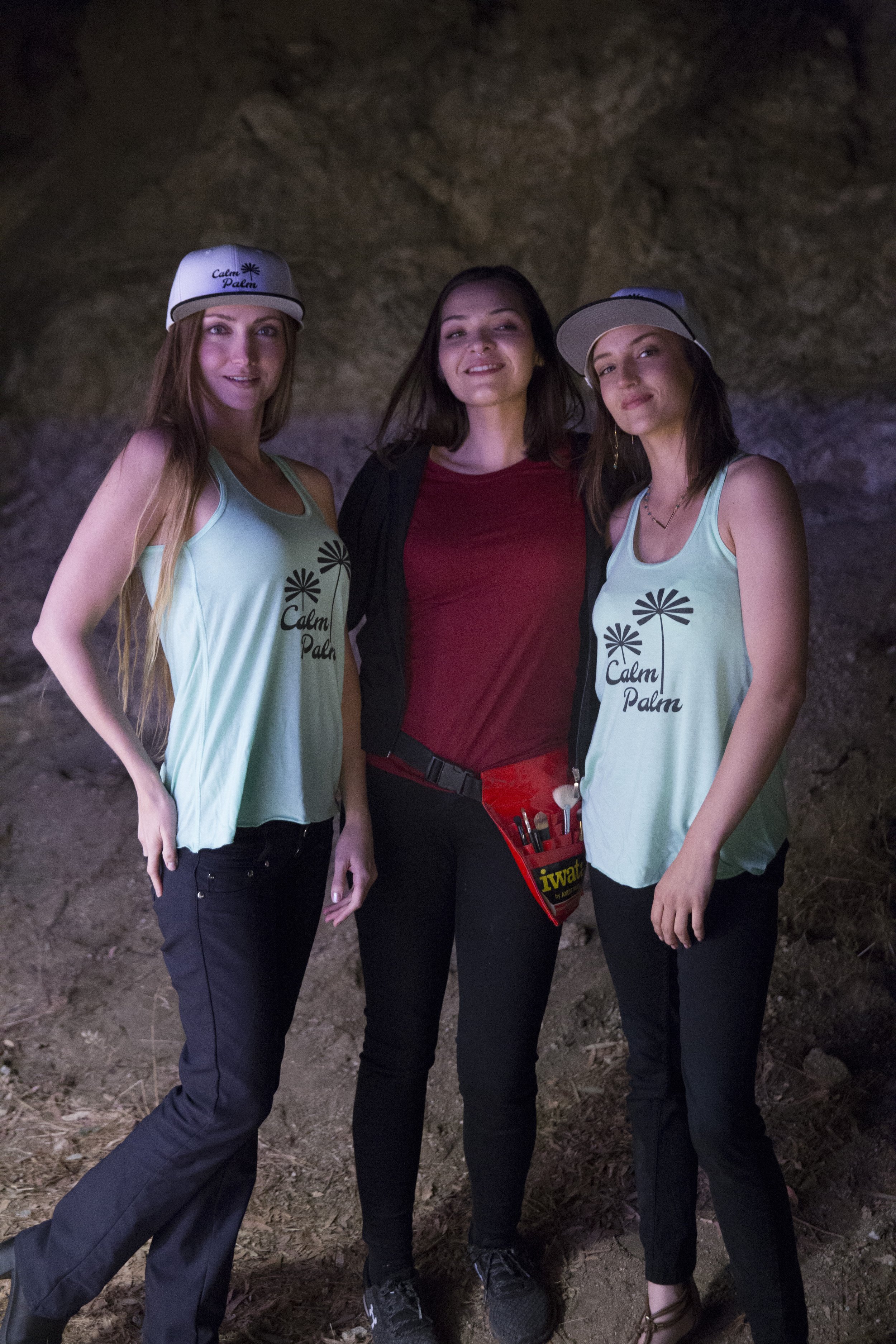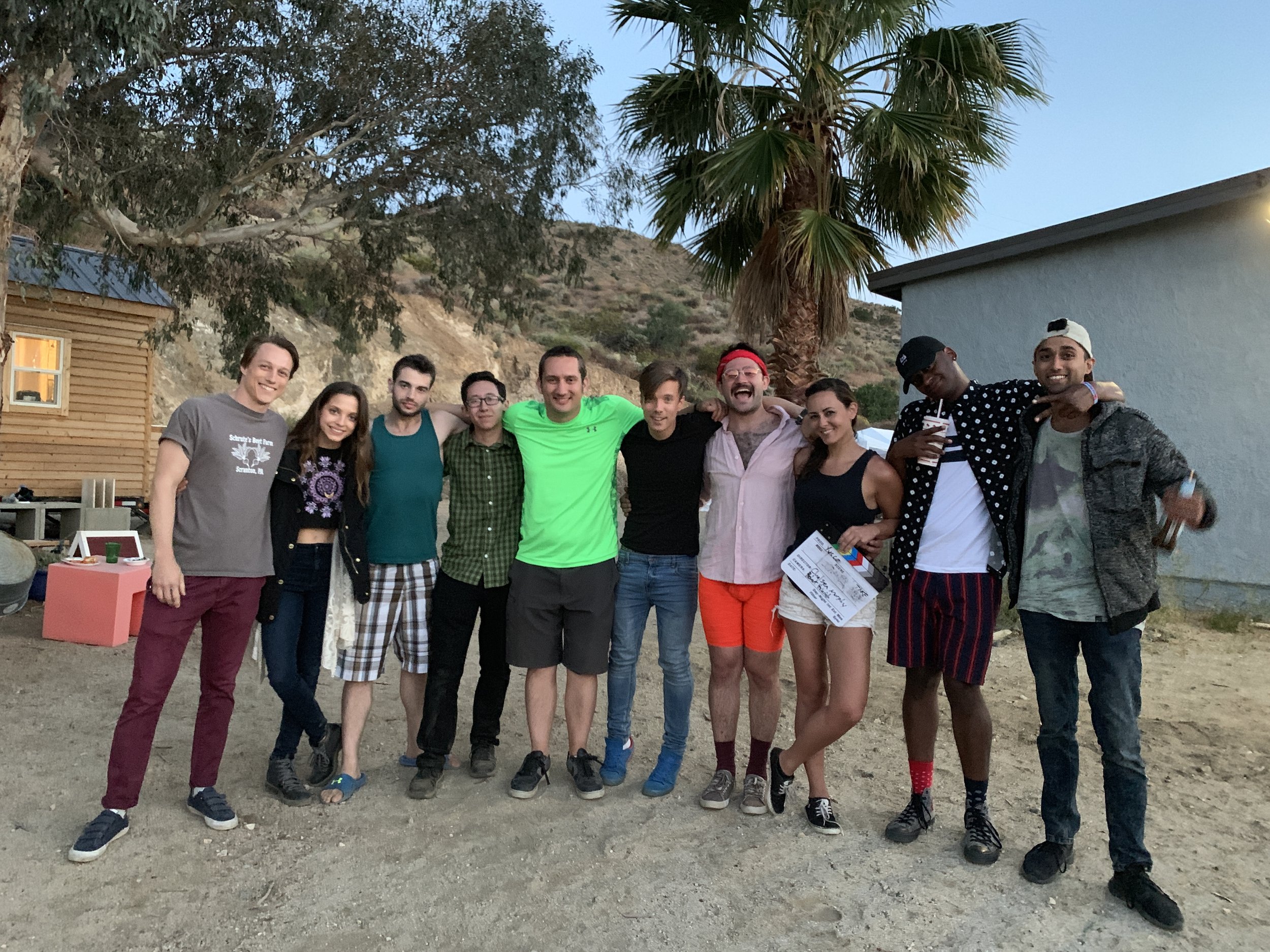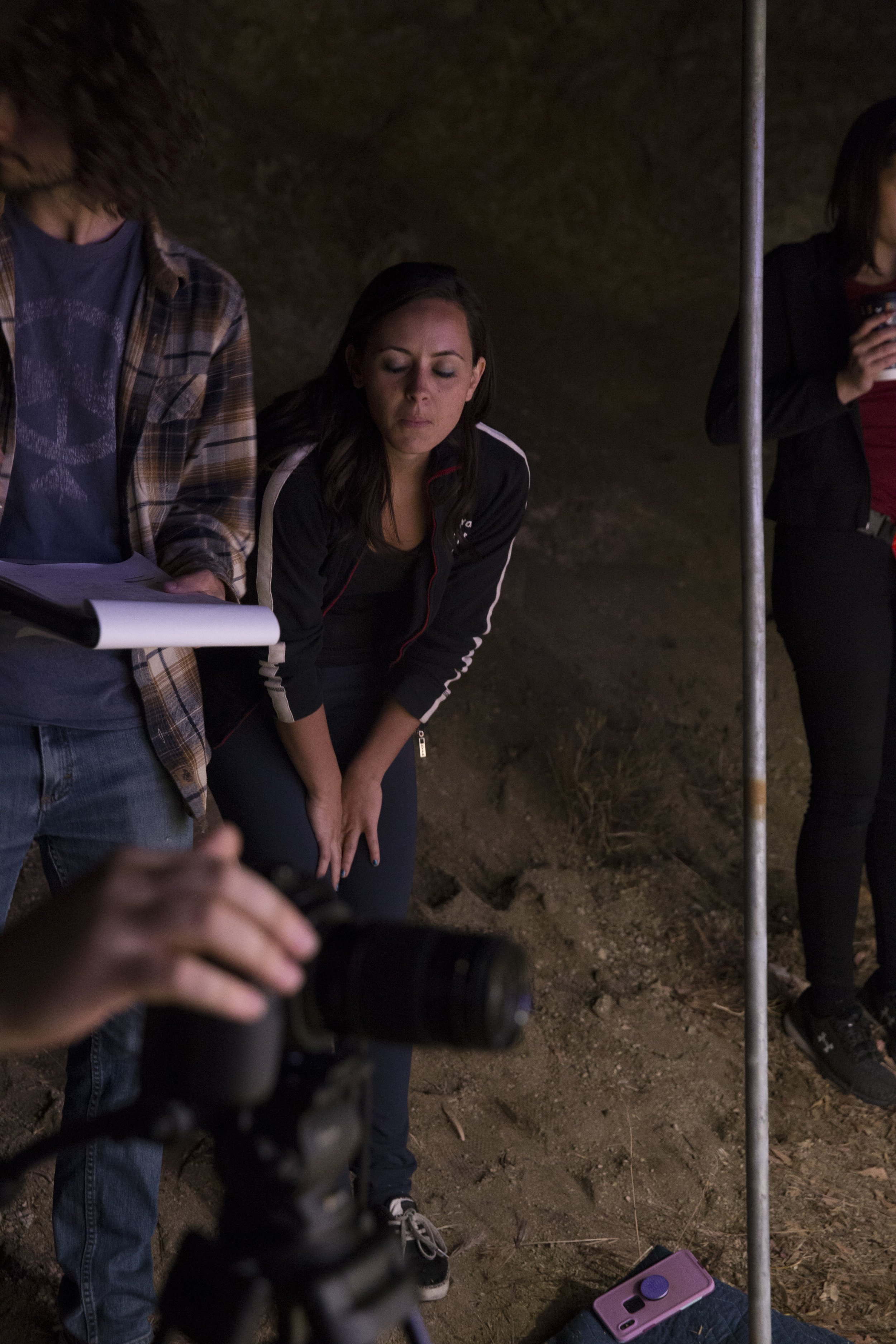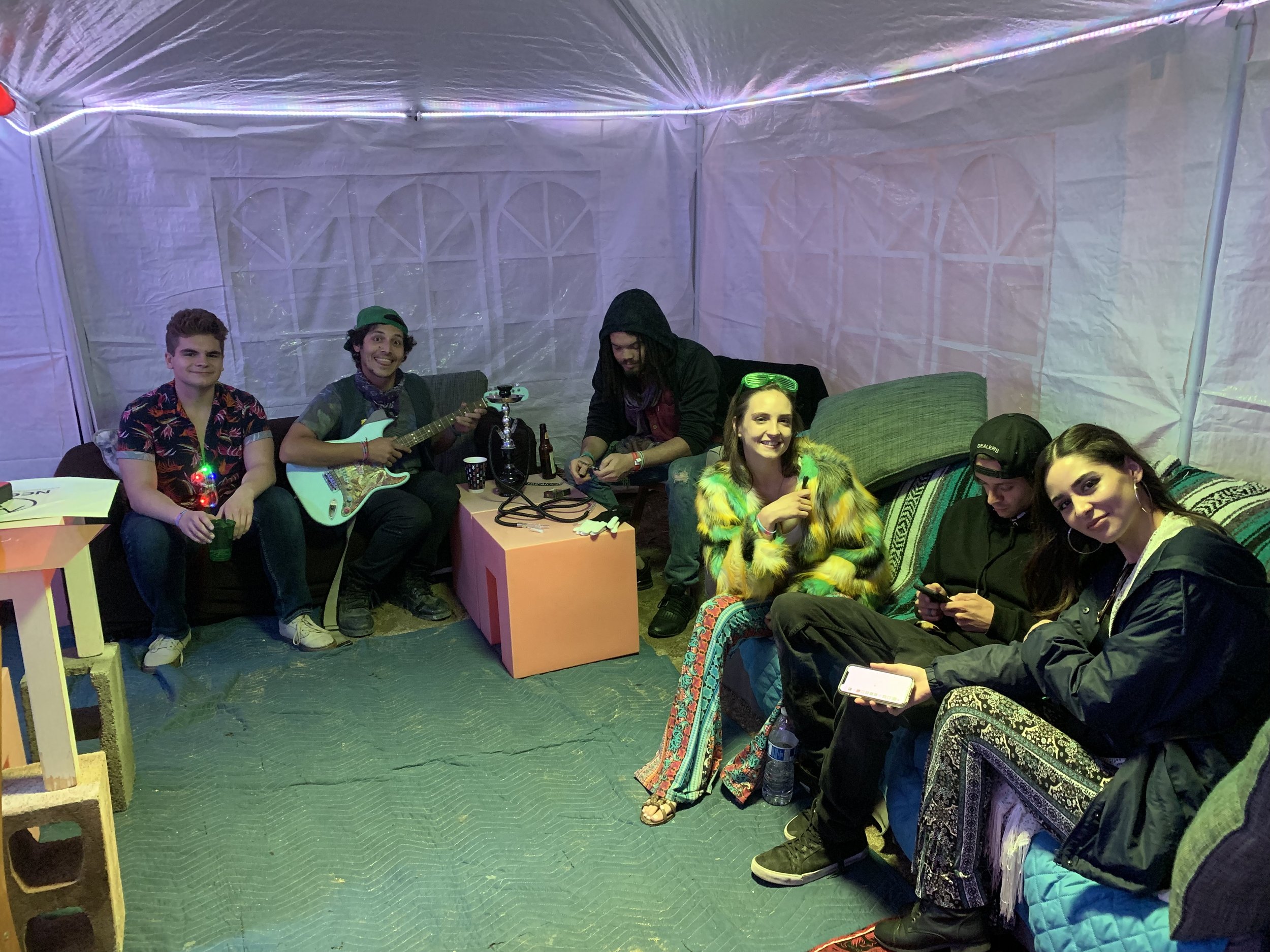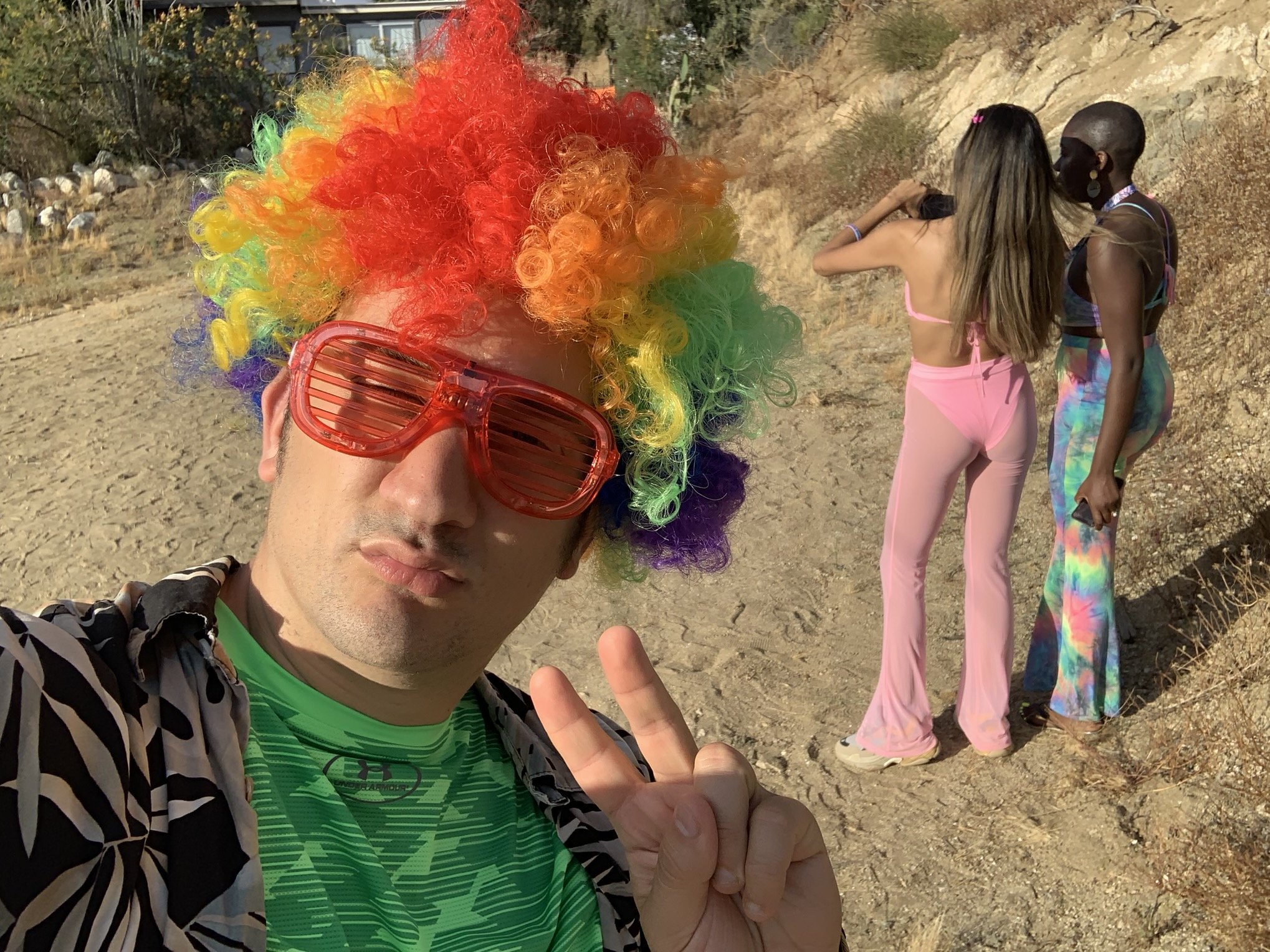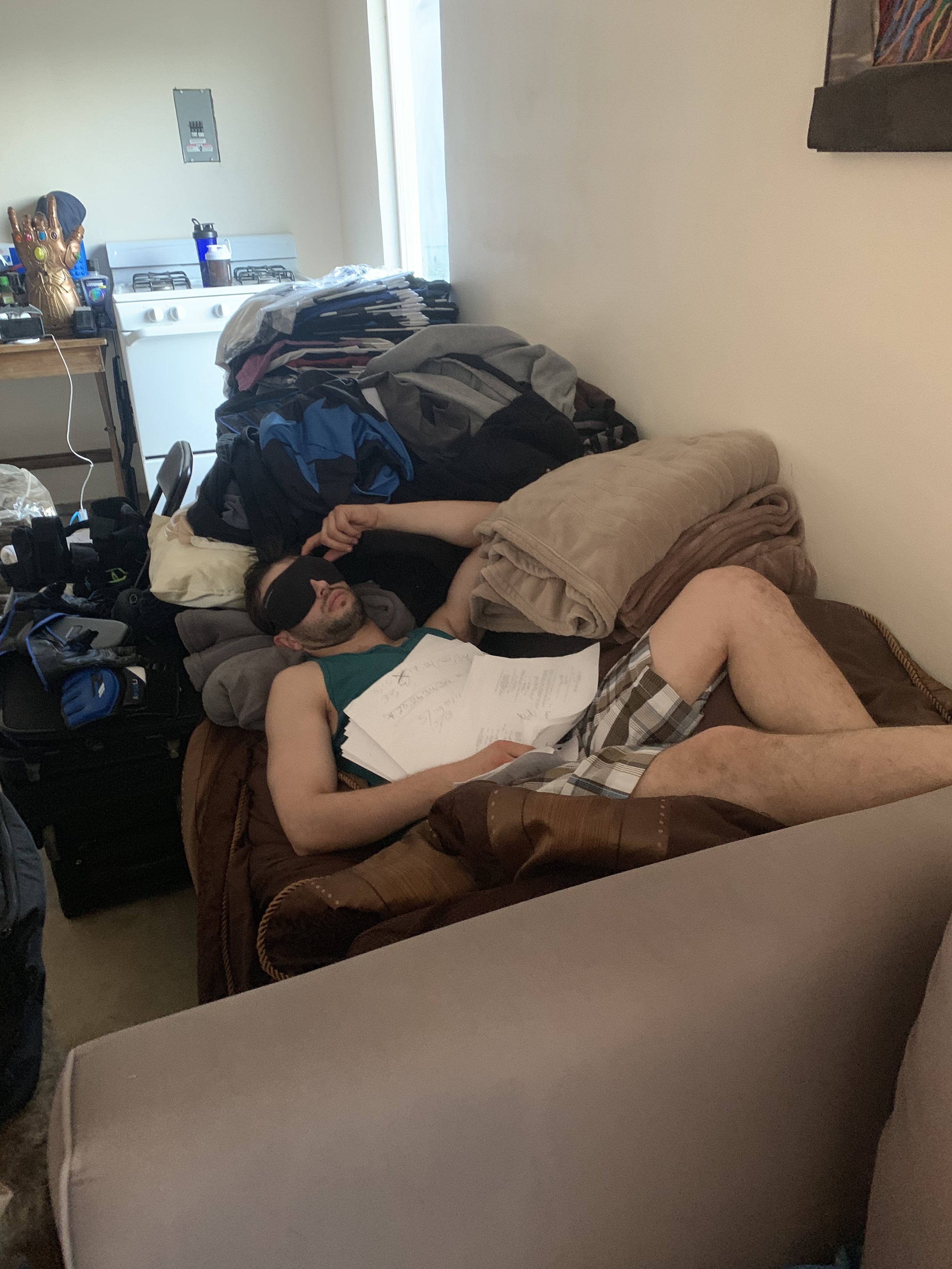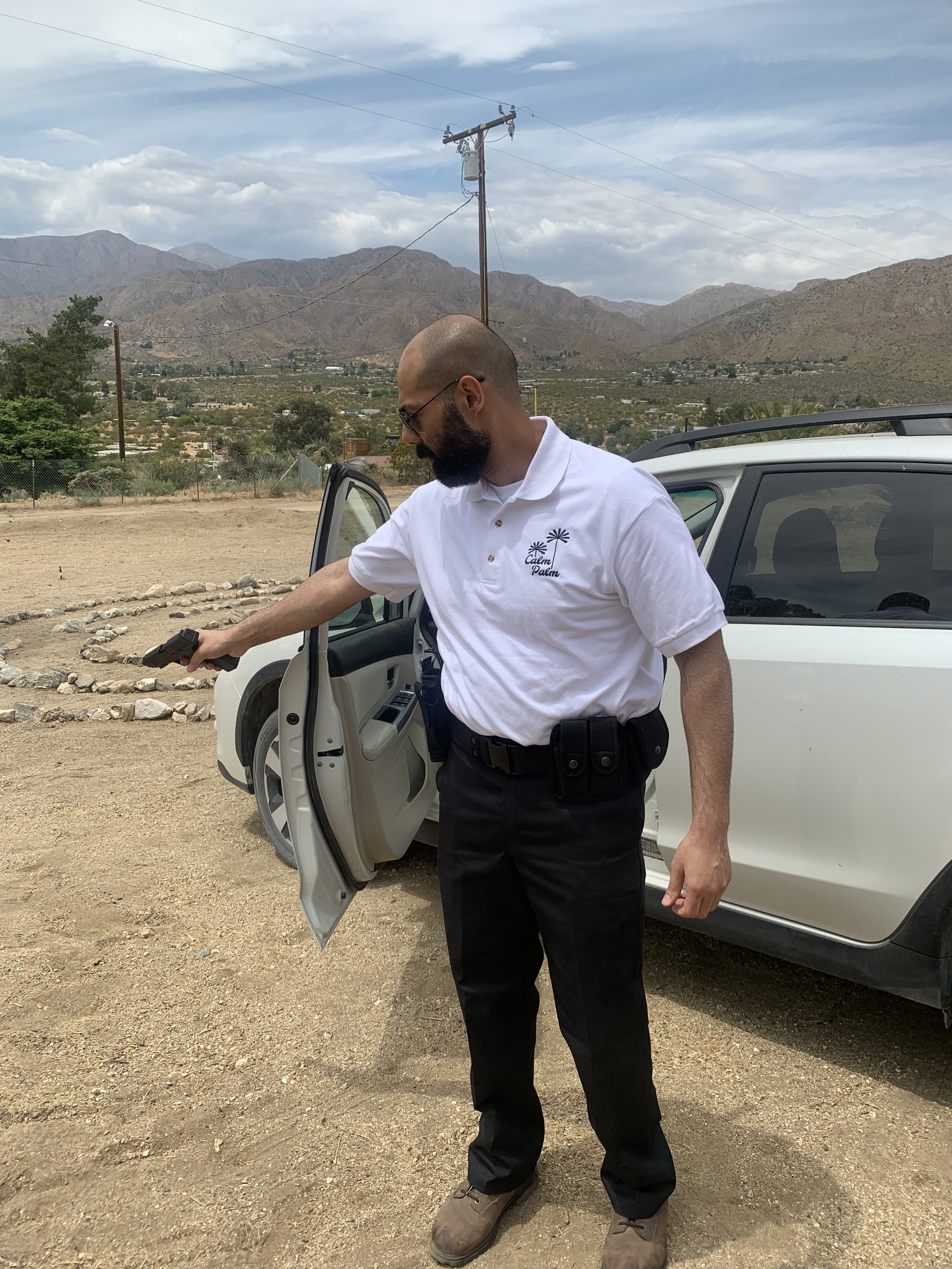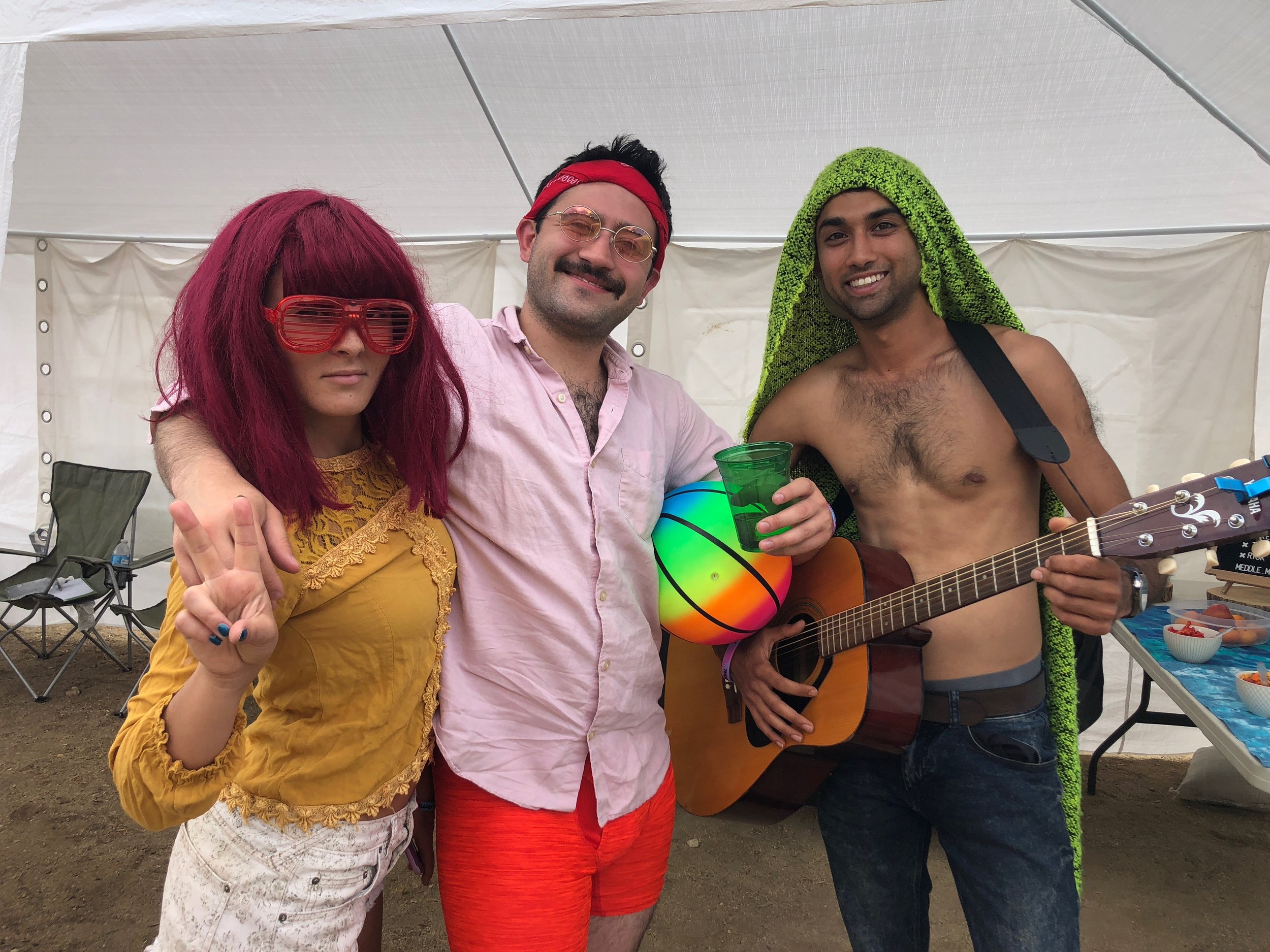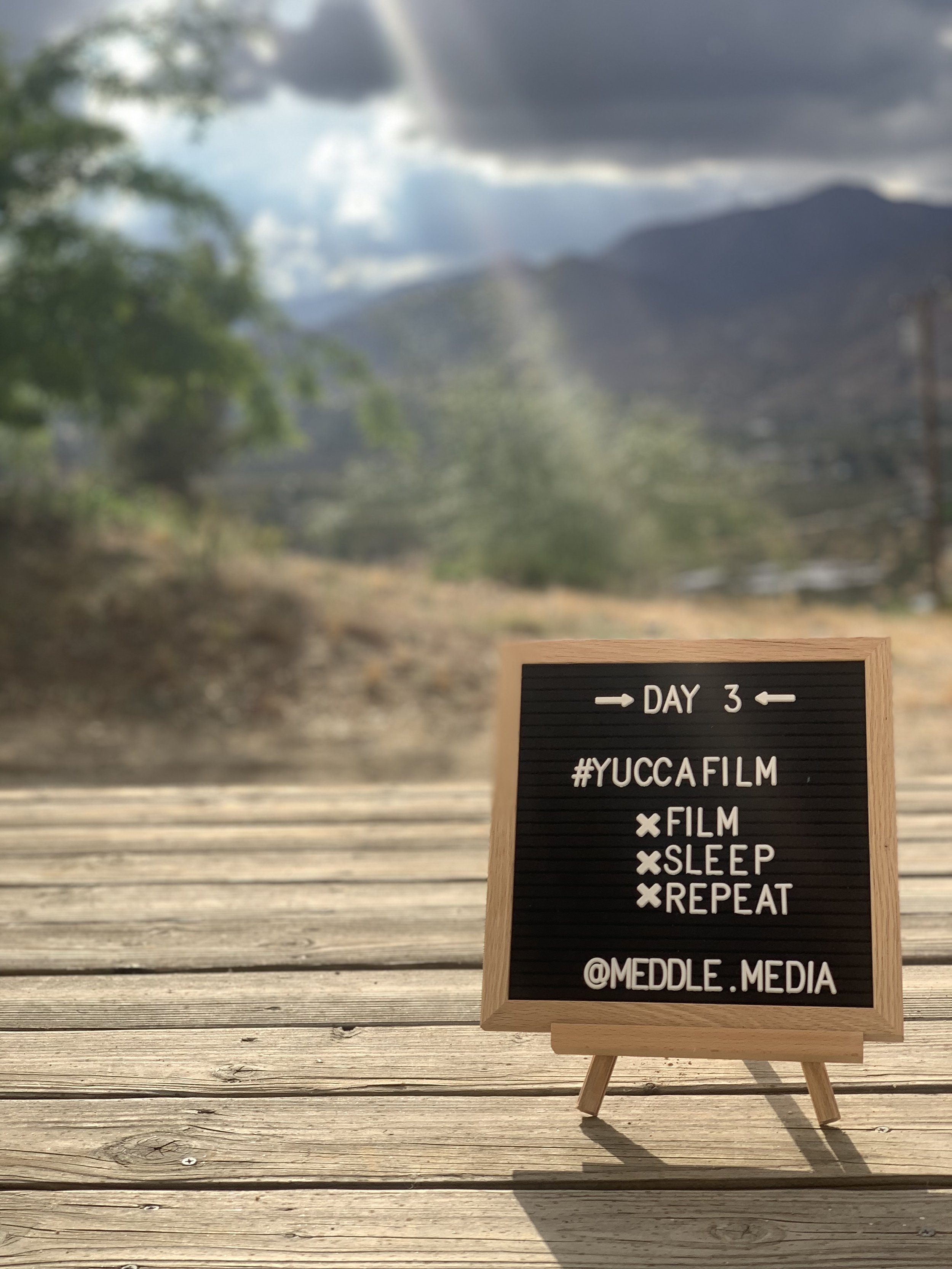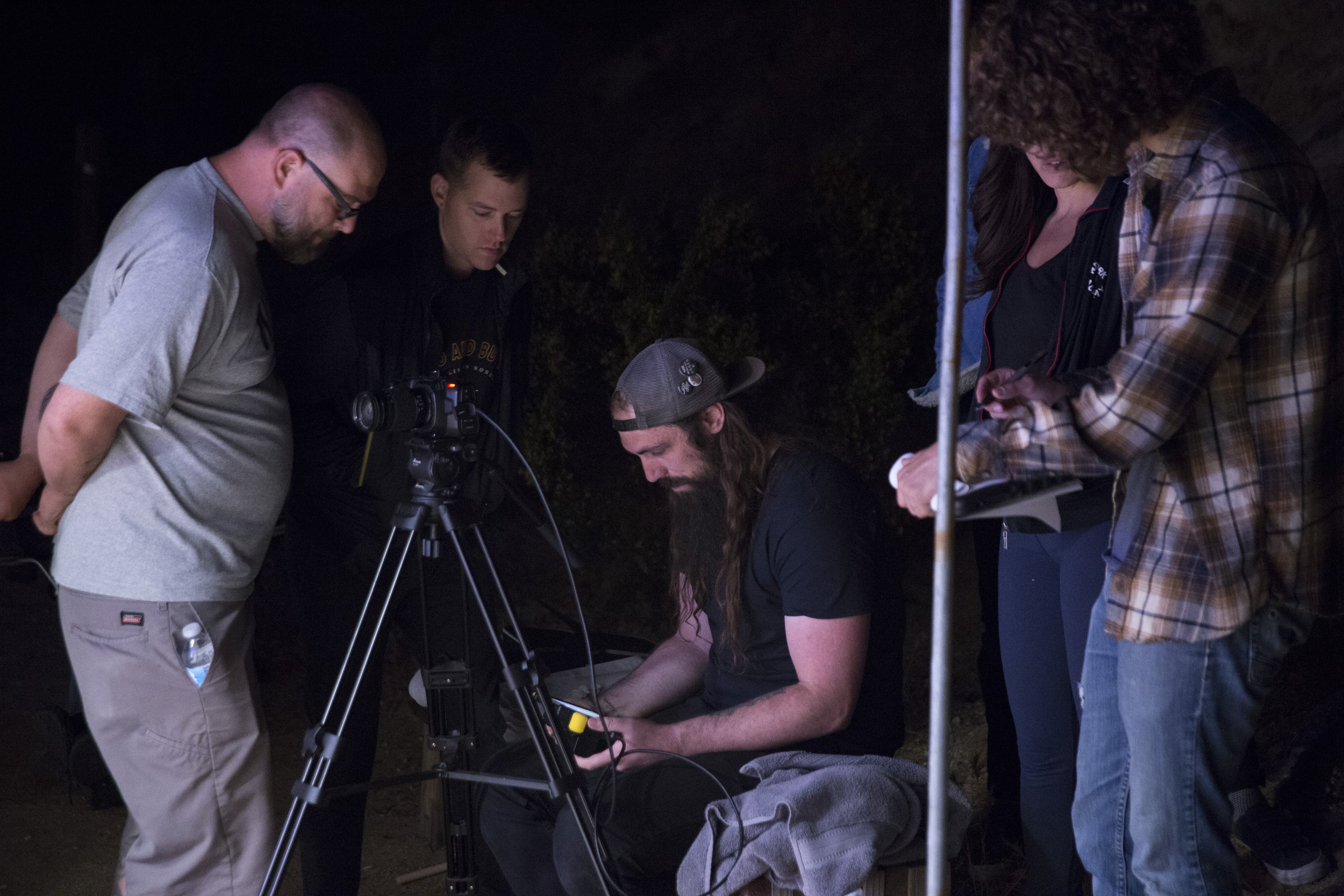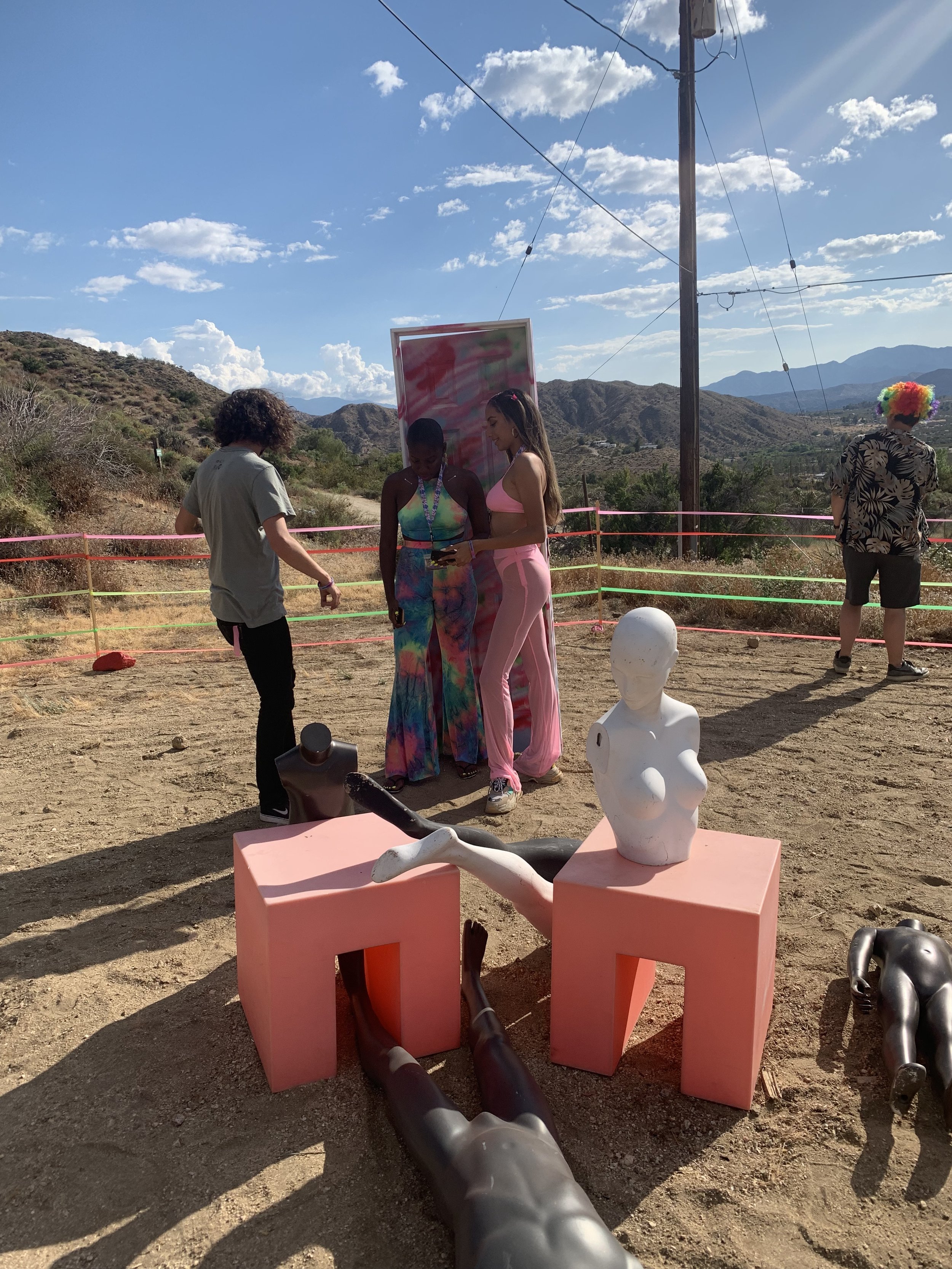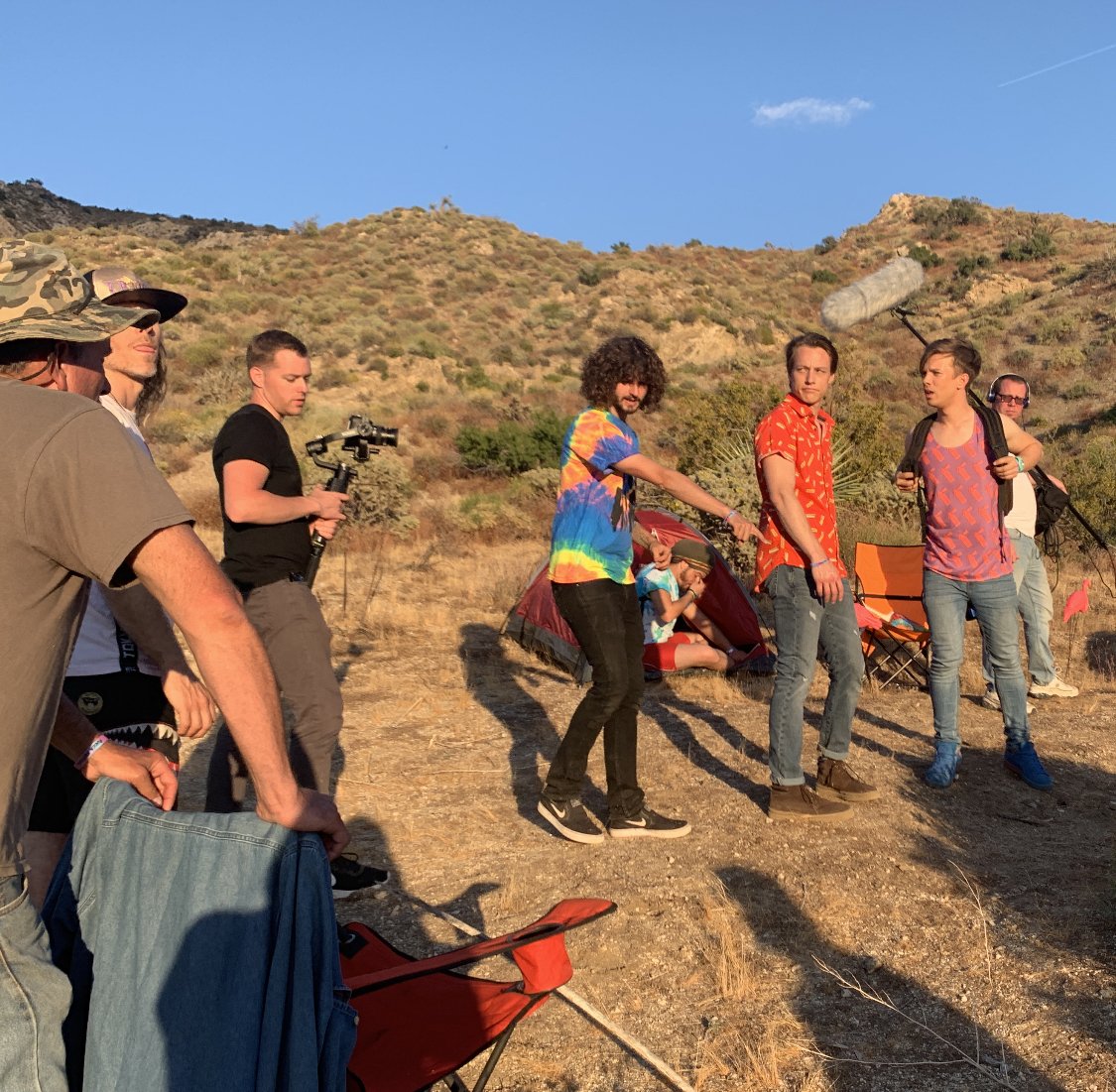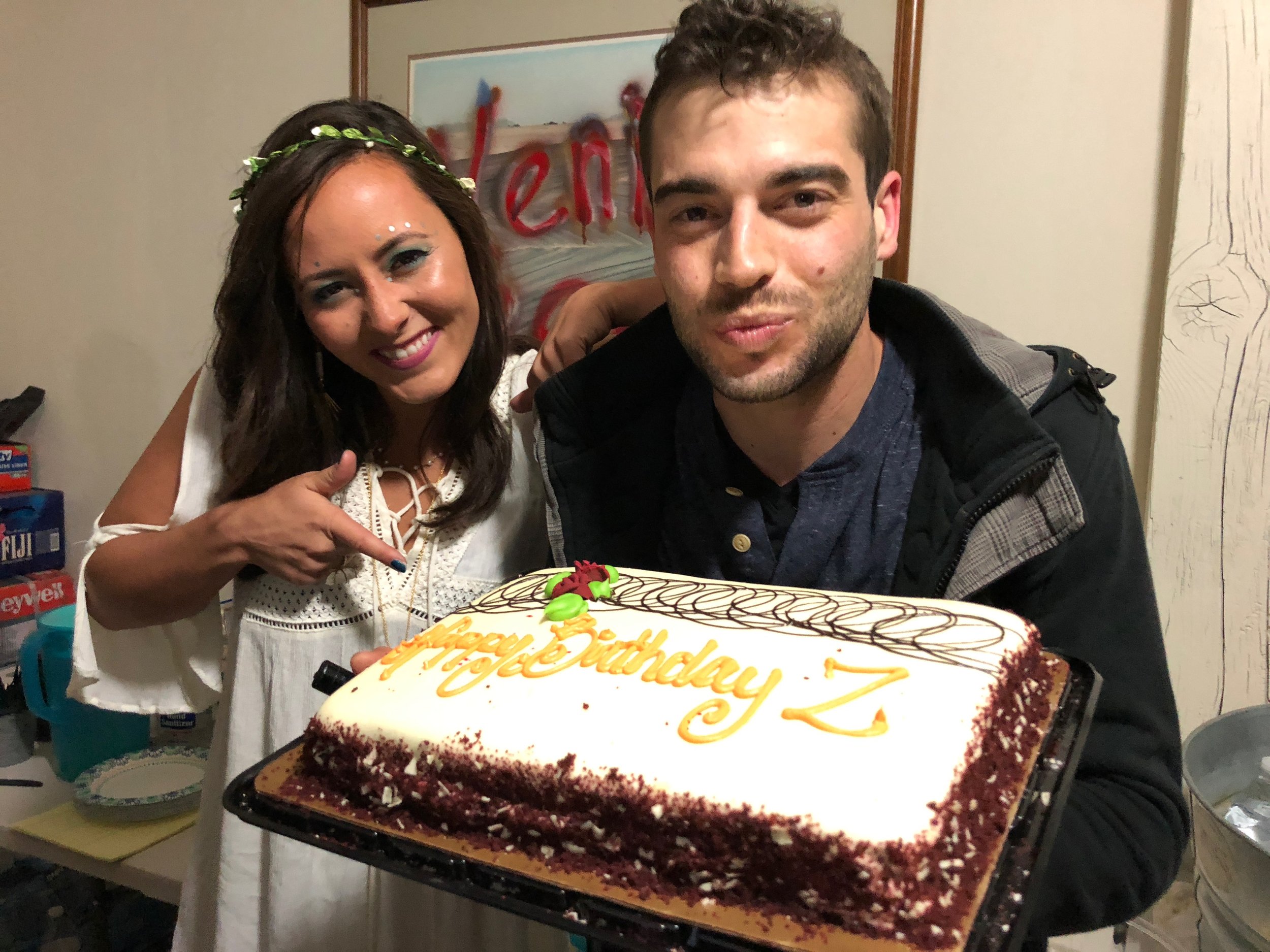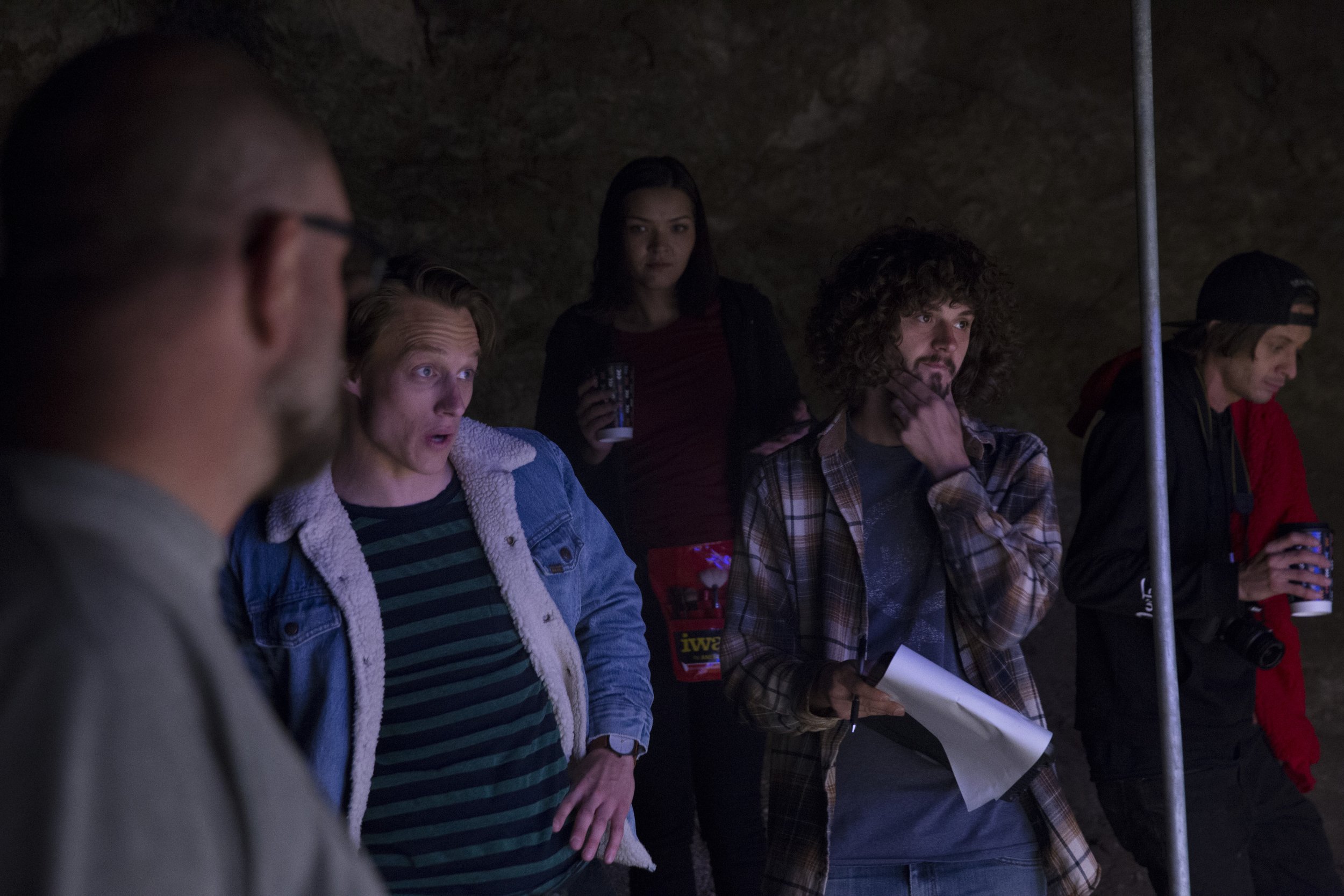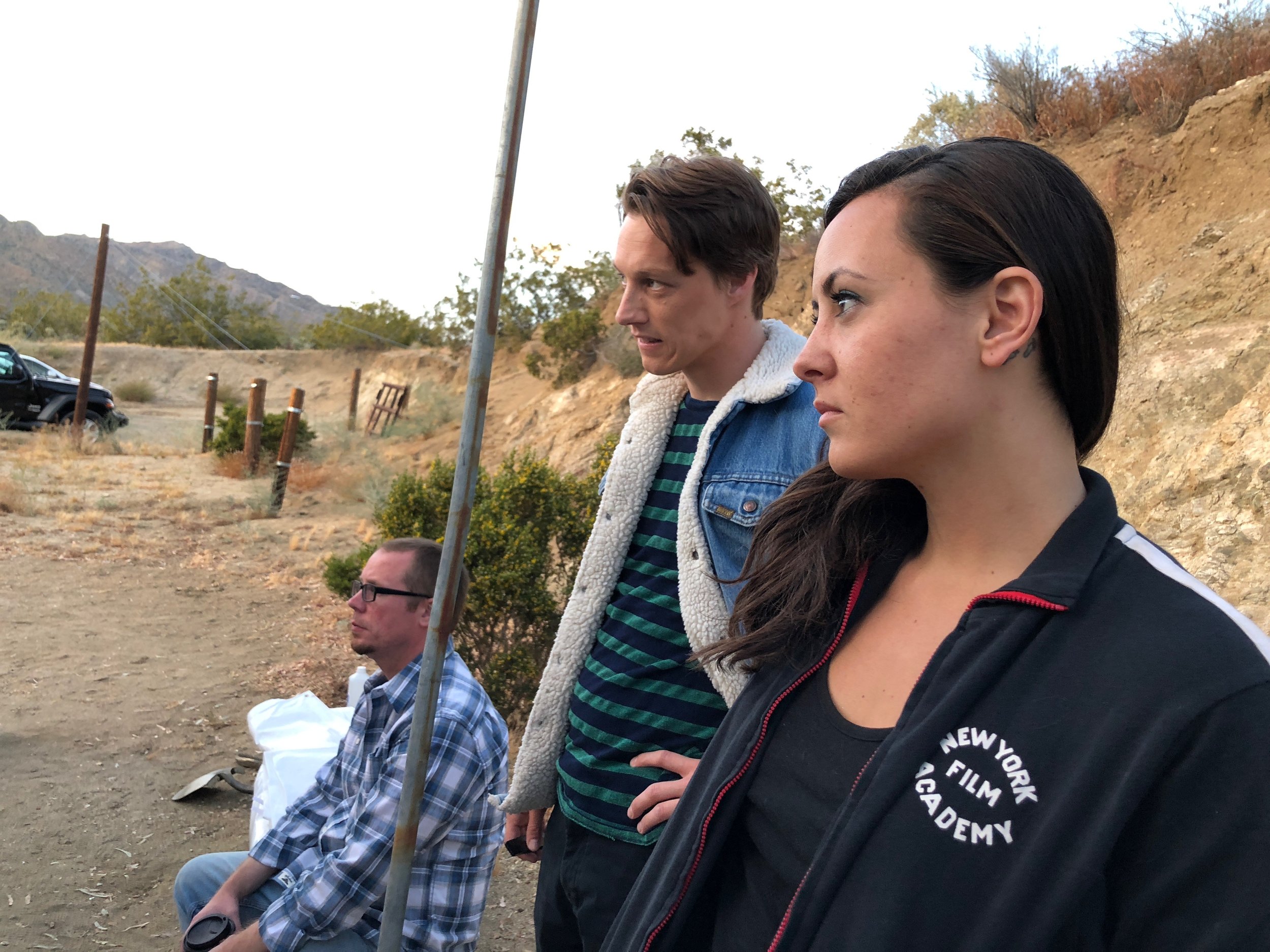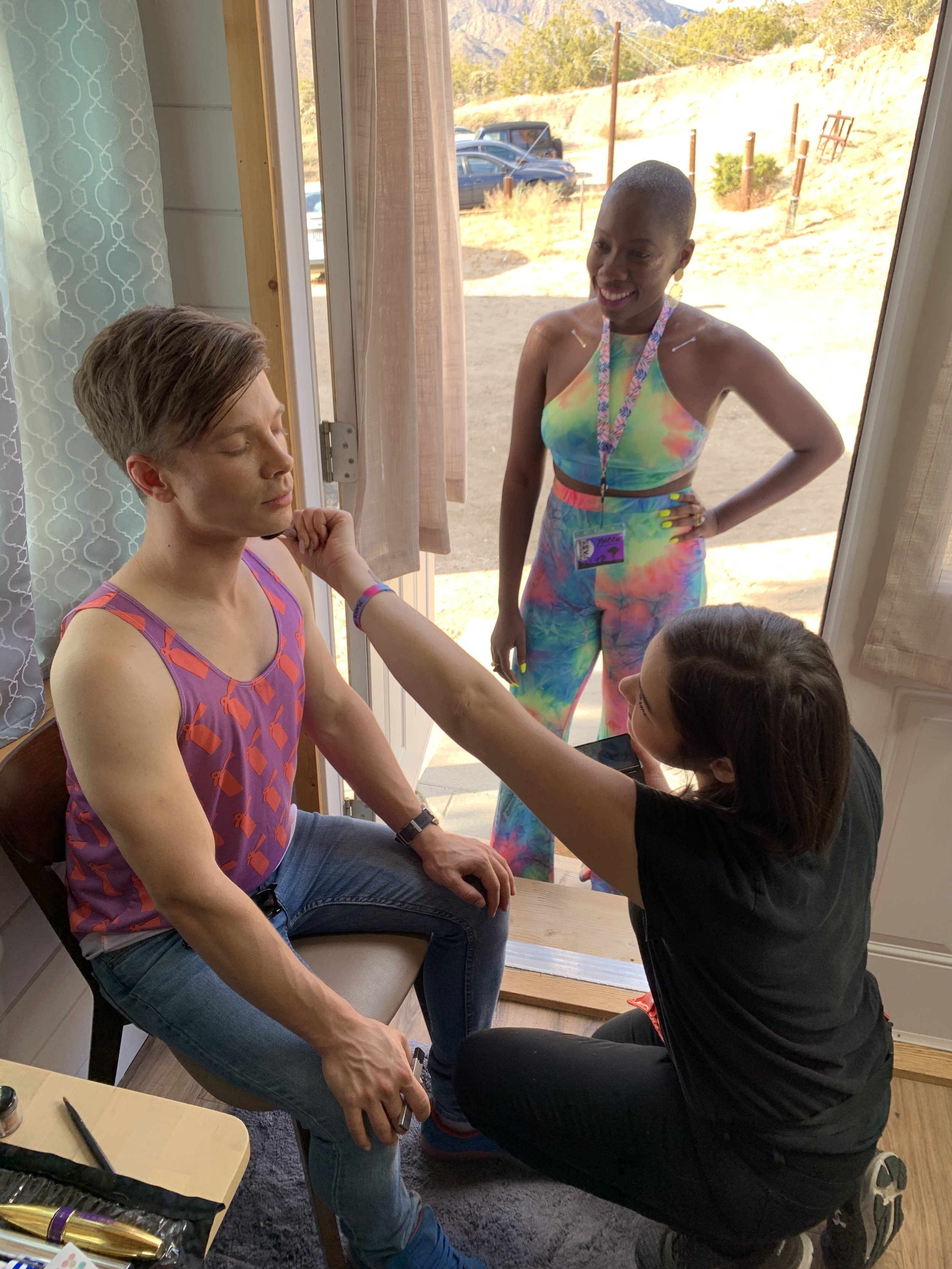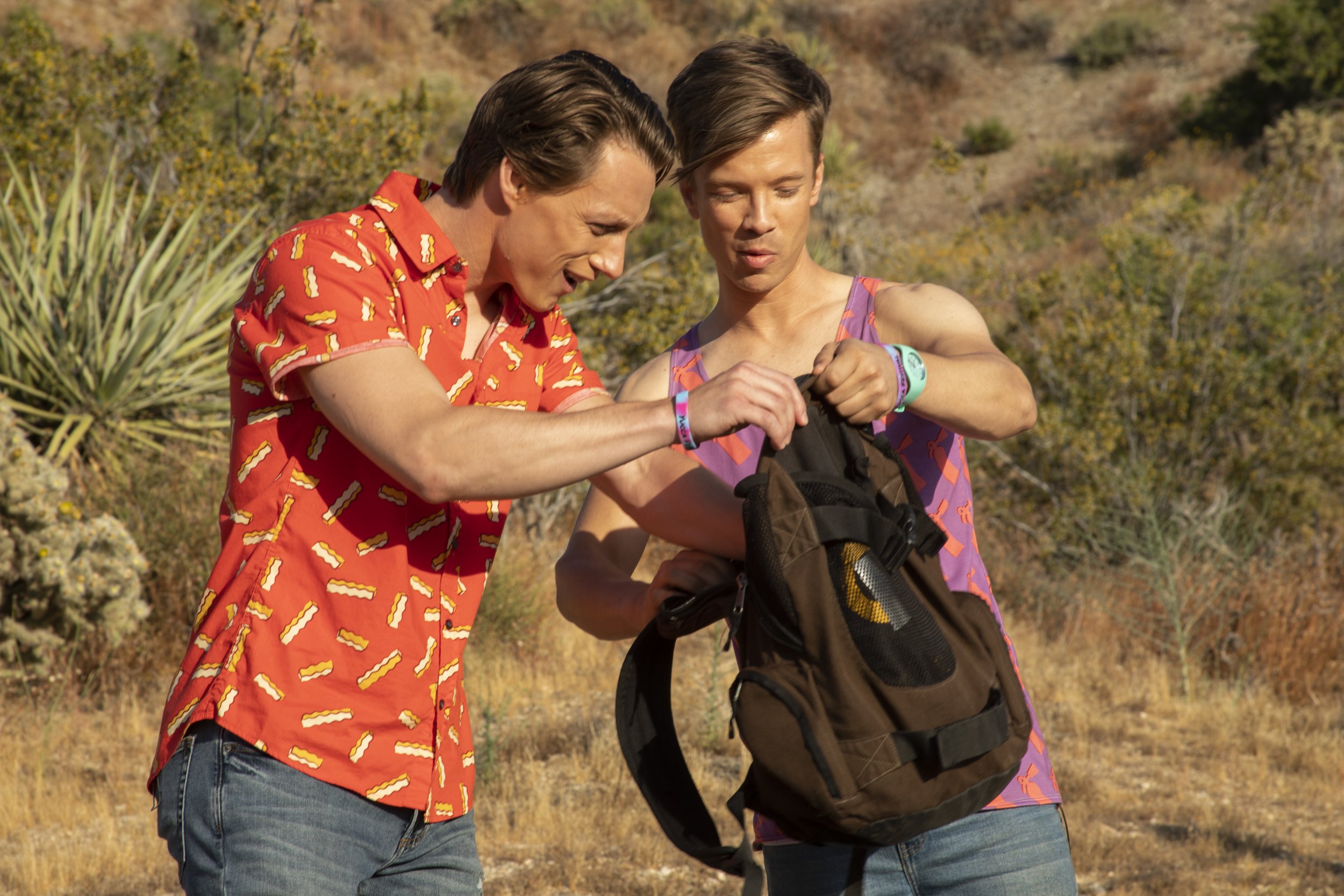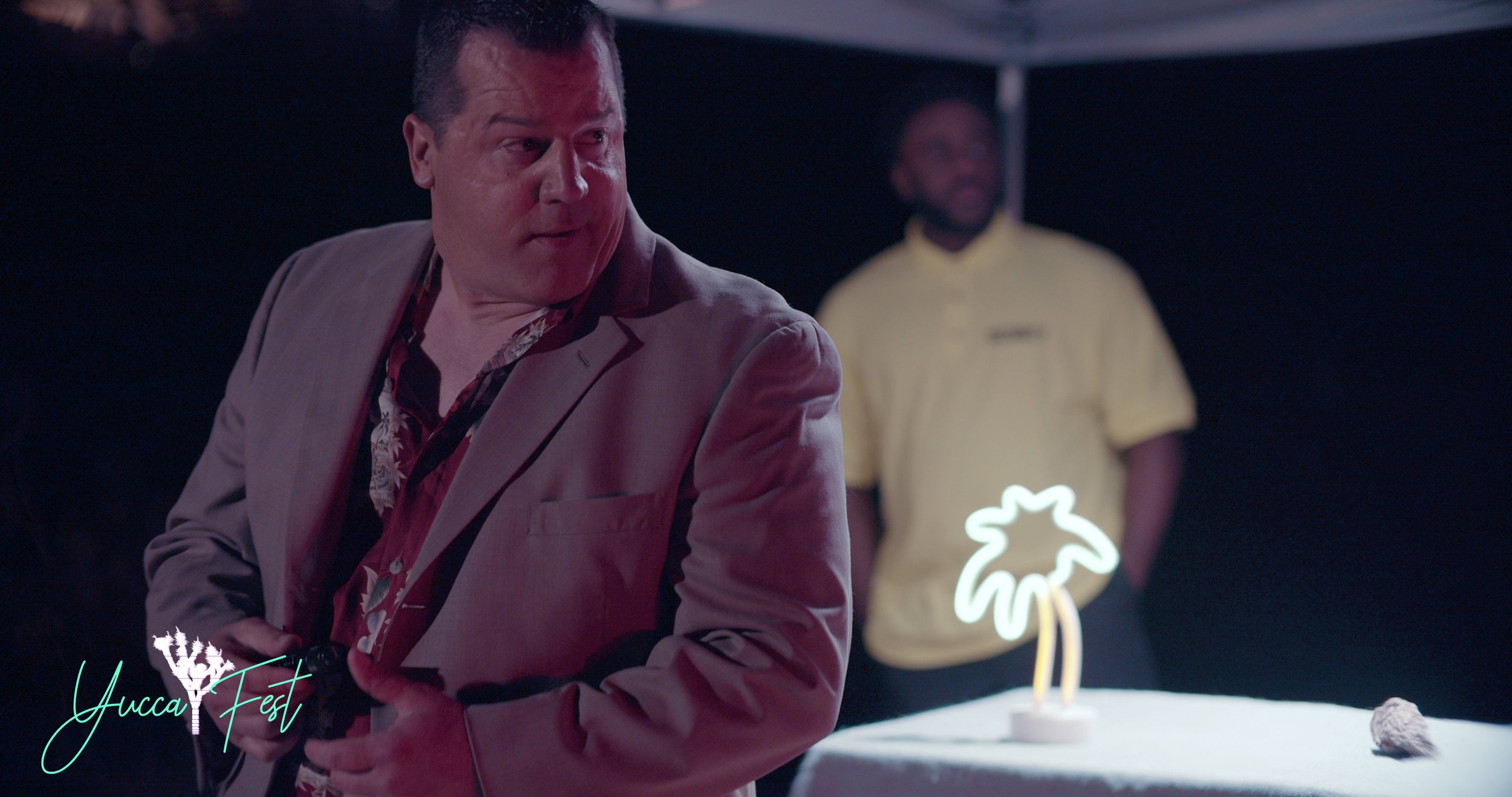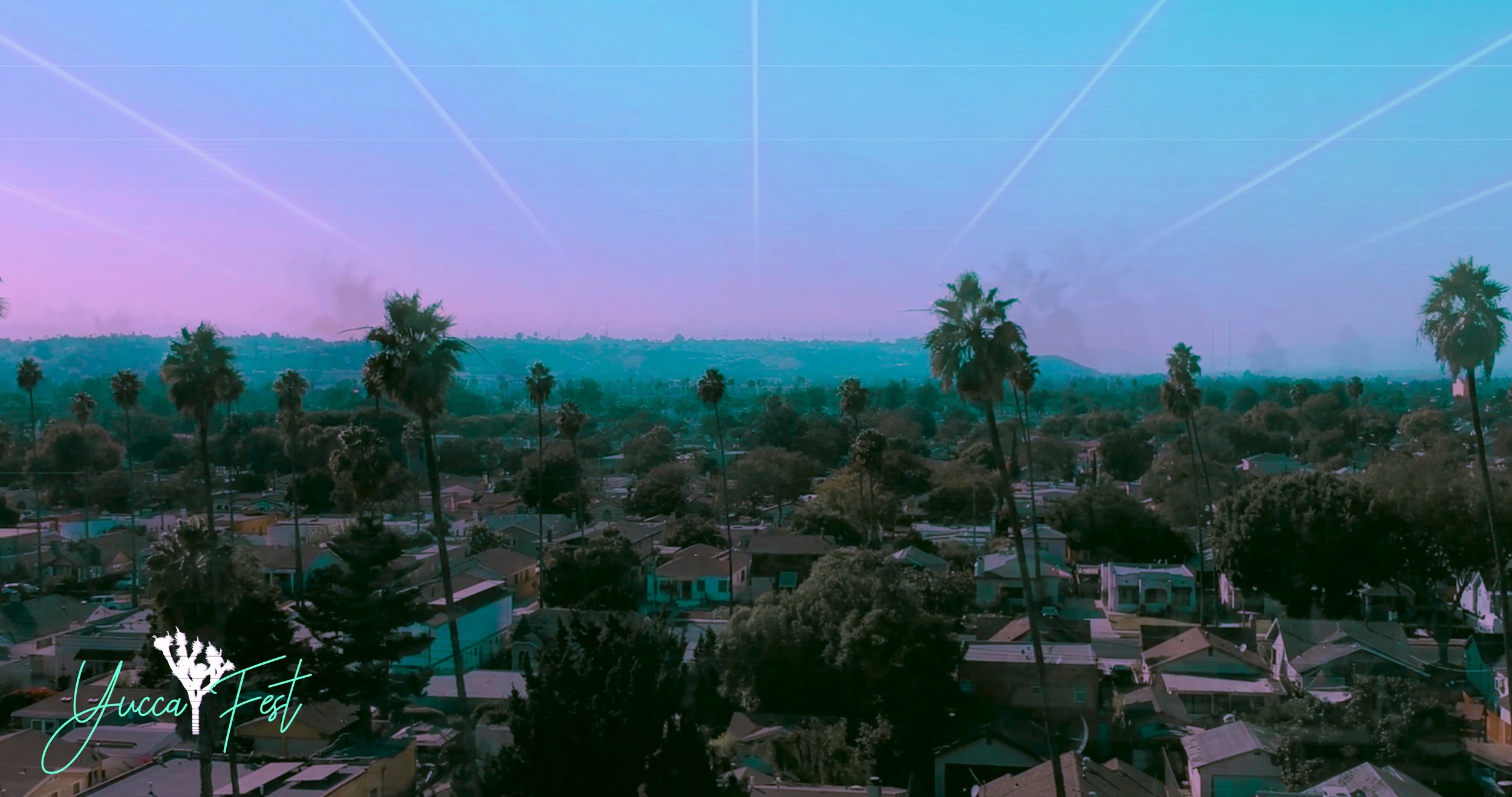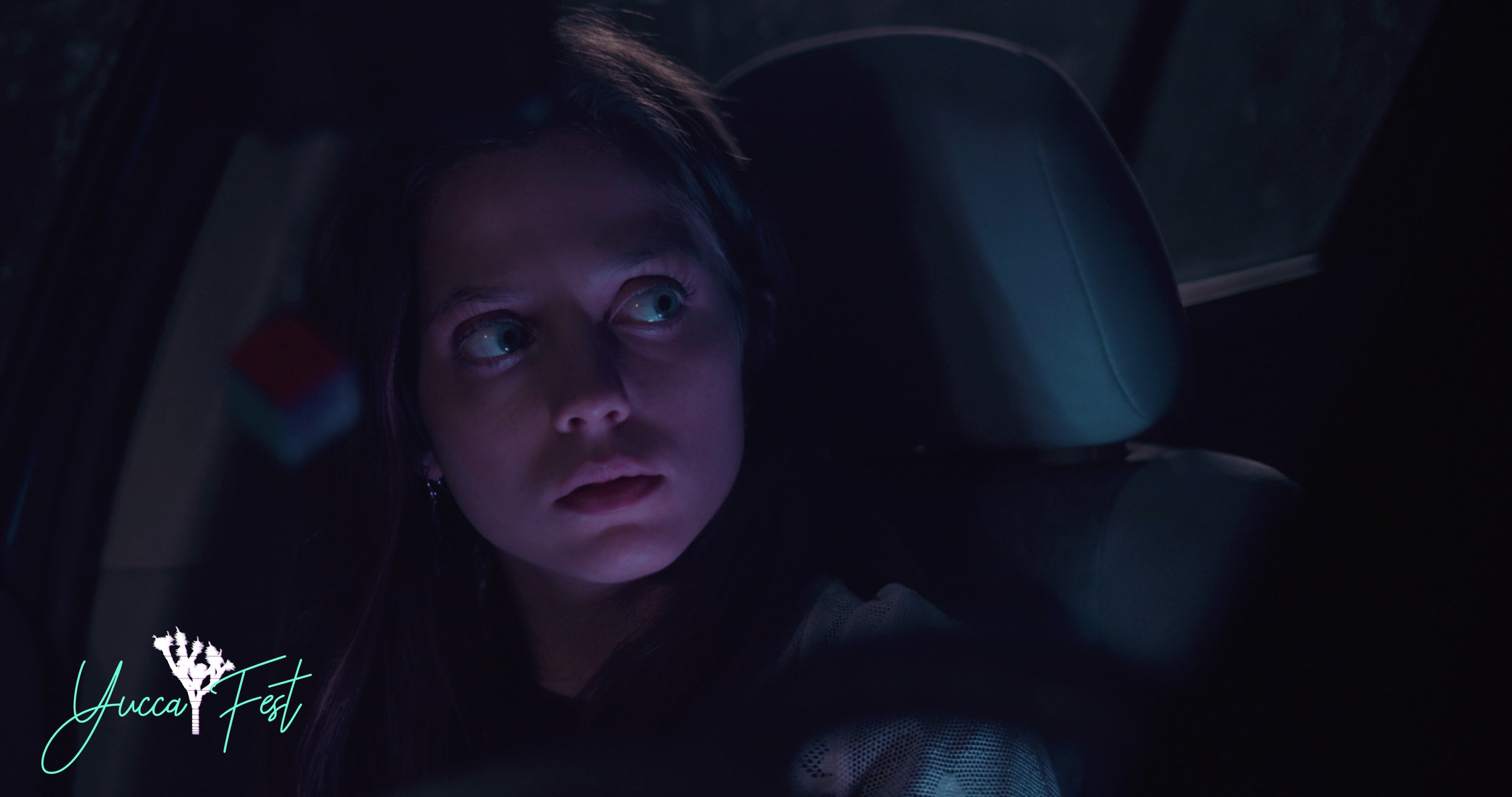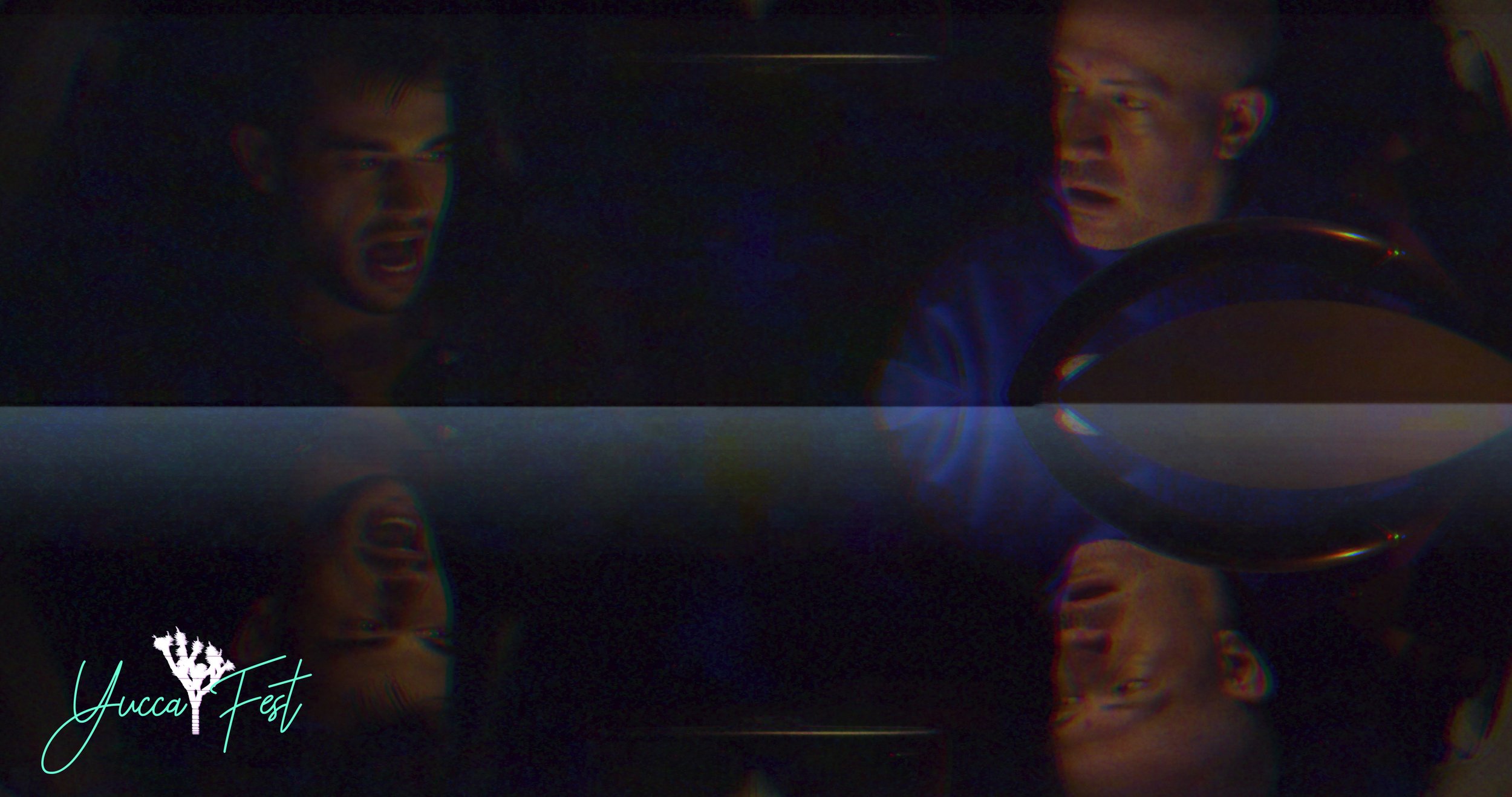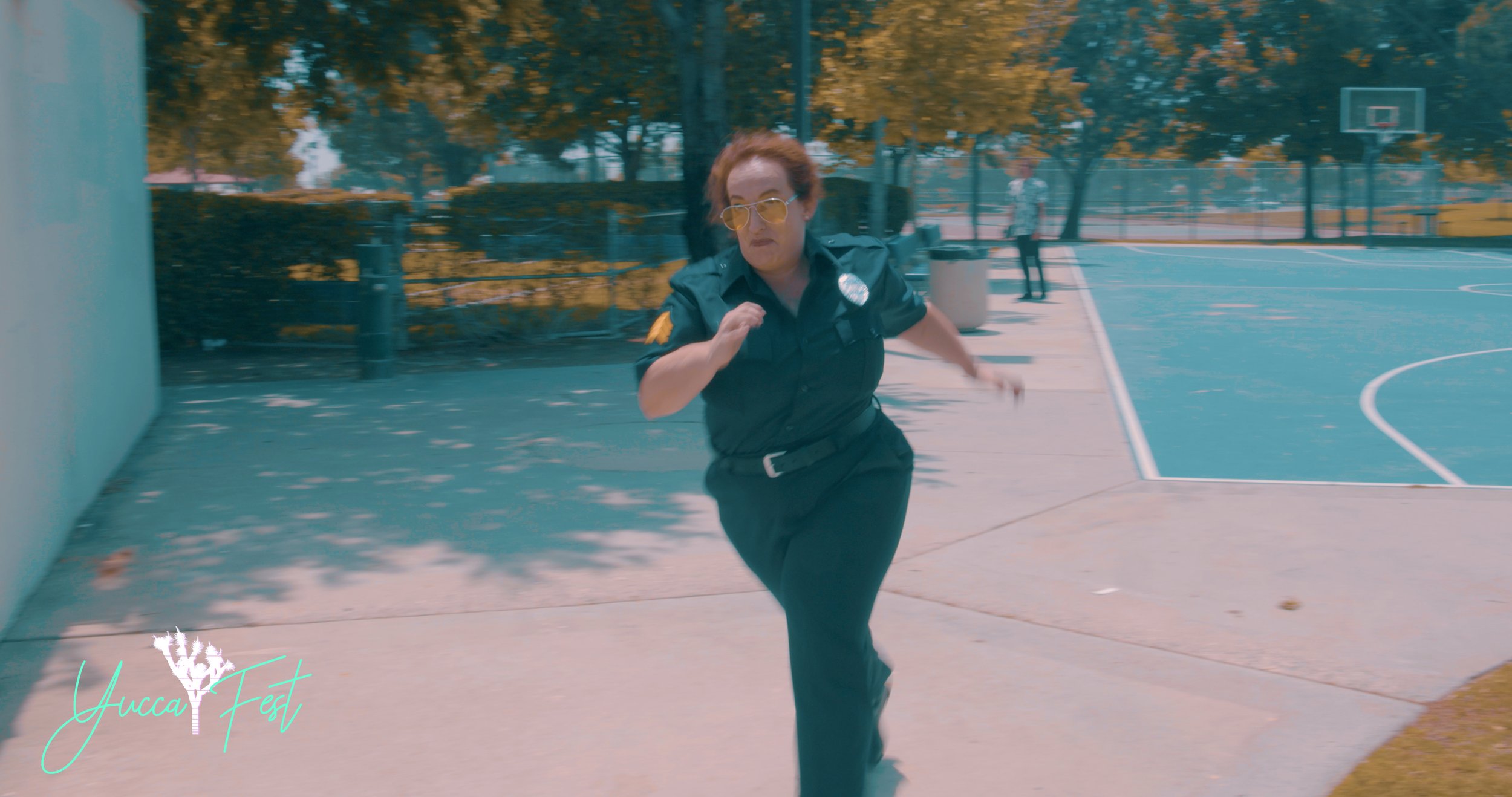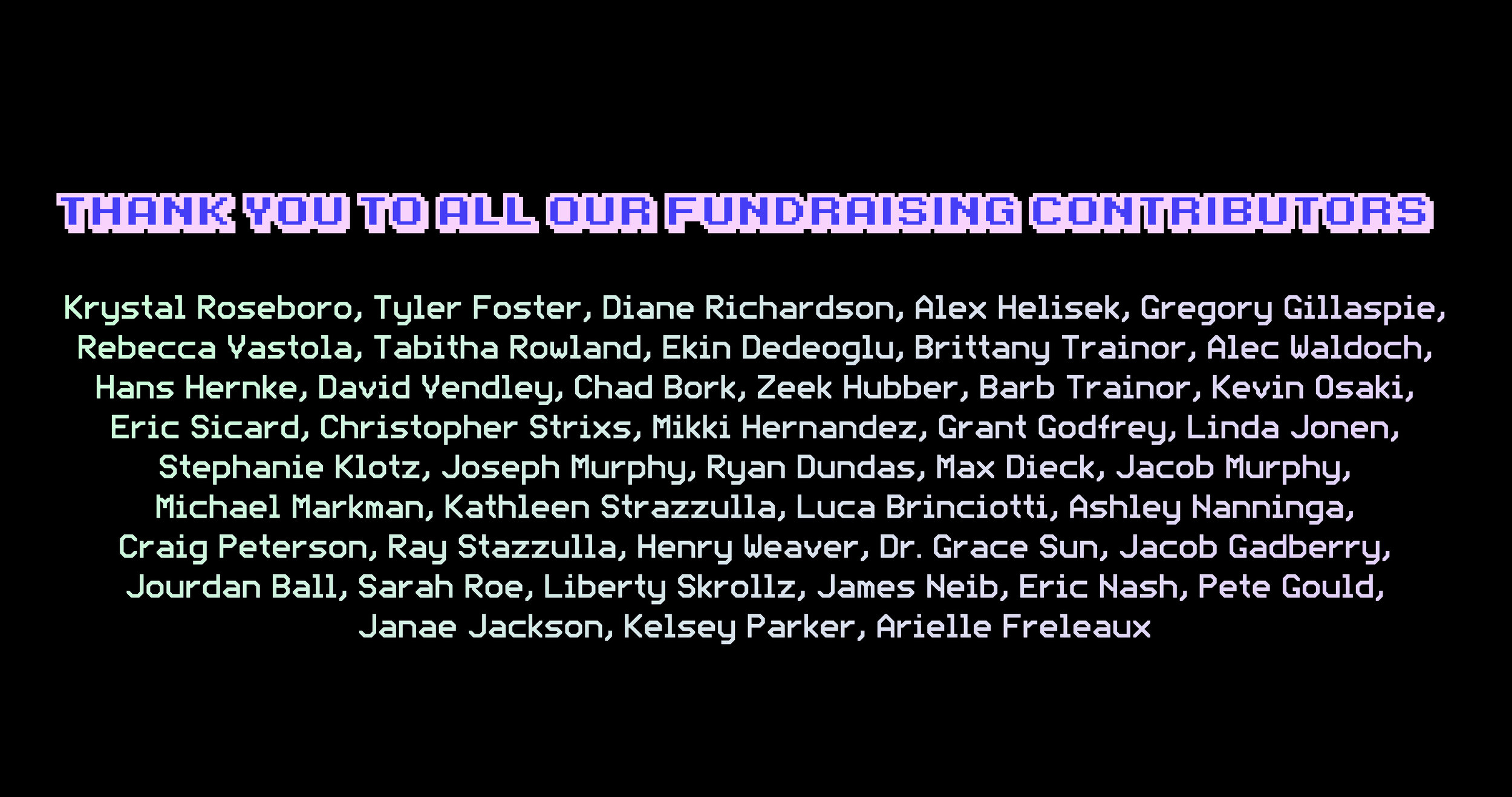find out who you are
It’s all part of the plan as four friends in southern California decide to rob a music festival. The only problem; someone else already has their eye on the money.
starring Monroe Cline, Jey Reynolds, Nicholas Harsin, Dale Van Slyke, and Zachary Zarvos
executive producer Michael Huffington
produced by Brady Trainor and Walt Roseboro III
directed by Chelsea Murphy
cinematography by Robert Heinrich
85 MIN / USA / Color / English
from left to right: Jey Reynolds, Monroe Cline, Nicholas Harsin, Dale Van Slyke
meddle media is proud to present it’s first feature film Yucca Fest. Filmed in May of 2019, and edited through the pandemic, meddle has completed what may be the world’s first vaporwave feature film. Through subtle and other times not-so-subtle means, Yucca Fest takes viewers on a journey into a satirical world of fun characters, vhs degradation, and gorgeous desert landscapes.
SYNOPSIS: Being reunited after some time, four friends in Southern California plot and execute a heist in the backdrop of a vaporwave music festival. Unbeknownst to them, Jesse, a new security guard working within the festival already has his eyes on the money. As the festival unfolds around them, circumstances become more complex, and the money must leave with someone.
Download our EPK
Find out everything about Yucca Fest by downloading our electronic press kit
Behind the Scenes
More than just production photos, go behind the scenes with stories and interviews from Yucca Fest
A peak behind the scenes of Yucca Fest
Yucca Fest: A Mirage of Vapor and Filmmaking in the Mojave
interview by Roy Chalkevski
Making a movie these days is tough business. Indie movies feel this more than anyone. With tiny budgets that can get completely zapped by the time filming concludes, and oftentimes leaving very little for marketing, it seems as if some great indie films are destined to fly under the radar, or to swim in a sea of other indie flicks on streaming services, that is if they get made at all. So what can we do? Personally, if I see friends in need for their artistic pursuits, and I believe in them, I give to their Kickstarters. That’s exactly how I became an associate producer of Yucca Fest, the world’s first vaporwave feature film.
A micro-genre of electronic synth music, vaporwave has spawned an entire aesthetic loosely based on Roman architecture, the 1980s, palm trees, and pastel neon color palettes. Vaporwave is about the “mediumness” in which it’s delivered, the texture of the VHS, the skip of the CD, the dust in the air illuminated by the projector at the theatre. Vaporwave emerged from the early 2010s, and has evolved from music, to aesthetic, to internet subculture, but it has never made a full fledged jump to a feature film format. That is, until now.
Screening nationally in New York, Milwaukee, Las Vegas, Yucca Valley, and at the Chinese Theatre in Hollywood, CA, and internationally in London, Berlin, and Hong Kong, Yucca Fest captivated audiences both in person and online as festivals slowly returned to normal after the coronavirus pandemic. I sat down with director Chelsea Murphy, director of photography Robert Heinrich, and producer Brady Trainor to see how exactly Yucca Fest became the artistic creation it is.
Roy: Hi guys, hope you’re all doing well. Let’s jump right in. So Yucca Fest made it through its festival run, how was that experience?
Chelsea: It was a really incredible experience, and very humbling to see how well we did. One award in particular, best first time director, that one was really cool to win. It was unfortunate it was during covid so most festivals were online, but some of the cast and crew got to go to the Chinese Theatre (as part of the Golden State Film Festival) for an in-person screening, and of course our last festival was in my hometown, which was very special, seeing that it's tangible, not just on a computer. It was very cool.
Brady: Yeah, seeing it in the theatre is way different. It’s a great energy, I hope cinema can get back to where it was before the pandemic soon.
Chelsea: Yeah seeing people react, like, "you did laugh at that joke, okay cool, that was supposed to be funny. That’s great. Mission accomplished." And being able to do a Q&A for an audience at the MLC Awards in front of an actual audience that just watched and have questions from them was really cool. It definitely makes it feel real.
Roy: Yeah you were the sole representative for Yucca Fest there, how did all that go?
Chelsea: Yeah, unfortunately the speech wasn’t filmed, but I did give this really cool speech which I was dying to do because I wanted to honor everyone who put in all this hard work. Special shout out to Zachary Zarvos who came in literally at the last second and saved the production’s first day, and to Walter who was supposed to direct the whole movie of course. We almost didn’t go ahead with making it when we lost Walt, but we decided to make it in memory of him. So I really was excited to thank everyone and talk about how much hard work everyone put in.
Roy: Talk about the desert as a character, how was this accomplished?
Robert: I think that location scouting was a huge part of it. I do a lot of time-lapse stuff in the Mojave. It’s such a huge place, and each place has its own look, but you know you’re in the Mojave. I think we’re all raised on that. So much stuff was shot out there that when you think of a desert you think of the Mojave. So a lot of that character comes from film history, and how much stuff has been done out there. It’s a beautiful place man, truly unique.
Brady: And at the time, I was living in Morongo Valley. We were right next to the west end of Joshua Tree Park. When you live in it, you get to know its best and worst angles. You get to see how it shines and which parts look- we’ll say not so cinematic. So I think a part of it too was letting the desert sort of tell us how it wanted to be shot.
Roy: You can tell. All the desert shots just work so well, and so does your cast and their chemistry. How did this group of actors come together?
Chelsea: Thank you! As the casting director I worked really hard to not just find the right people but to do chemistry reads to make sure everyone would mesh together well. These characters have been friends since high school and it’s hard to fake those kinds of bonds. And then when I became the director it was really important to me to set up rehearsals kind of how a play would do it rather than a film to get the kids familiar with each other and that was successful, they went rogue and started hanging out with each other and going out on their own and going bowling and stuff.
Roy: That’s good they all liked each other. I’m sure it makes working together way easier. So you get your cast, you get them all out to the desert. Now what?
Brady: Now all that scheduling I did comes in handy while also going right out the window. We had a fairly big supporting role drop out the day of, which wouldn’t have been such a big deal if all three scenes we weren’t shooting that day weren’t all his. That’s where Zarvos came in and saved the day.
Roy: So the desert wasn’t the only contender you had to deal with. Apart from the human errors, what was the experience like actually shooting a movie in the desert?
Robert: The biggest challenge going into the desert was definitely the elements. It’s never forgiving. It can get hot obviously, but expect to get cold, too. There’s usually a 25-35 degree difference between day and night. It can be calm one minute and have near-hurricane force winds the next day, it’s very unpredictable and can be tough. We got to experience it all.
Brady: Yeah, and then we went from the desert straight up to the mountains for a day to shoot some scenes too. That was a huge temperature change. It’s crazy how much difference there is in just two hours of driving in Southern California.
Robert: All the snow on the mountains. One of those things about SoCal, one thing you’re in the desert the next you’re in the mountains skiing. That was nice, fortunately enough we shot inside when it started snowing. To go from the dry desert to that is always a shock to my system.
Roy: You go from the desert, to the mountains, to the city. I know you guys filmed in May 2019, but can you give me a basic timeline of how the movie ended up getting made?
Chelsea: We casted principle cast pretty far in advance, maybe six months out. We did a couple weeks of rehearsals in April. Then got everyone to the desert maybe a day before we started filming. We filmed for just about three weeks out there. It was supposed to be a really nice relaxing shoot, but between actor issues and weather... We had one day that was just completely wasted. The wind brought down our tent set, so we had to build the entire thing again inside a garage. And then, there were a couple pick up shots, mostly just festival inserts and that cool miniature shot! Then when covid hit, we were really able to take our time in the edit because there was no rush, which was a little bit of a bummer with the delay, but it did take some pressure off.
Roy: And Chelsea, you weren’t originally the director of the movie, right?
Chelsea: Walt Roseboro III was the original director. I was casting director, and we lost Walt to gun violence. Brady asked me, after deciding to go ahead with the film which was a big decision on it’s own- to direct the movie, saying he wanted someone who knew Walt and someone who was part of the process from the beginning, and someone who understood the story, and he liked what I did with casting the actors. Being an actor myself I know how to speak a lot of different actor languages, so I found it very easy to get what I was wanting out of actors. I was concerned because I had never directed before but luckily we had an amazing DP so I got to handle a lot of the hands-on moments with the actors because things like the shot list were already pretty solid at that point. And Walt was still a part of it at the step as well, so we got to keep a lot of the early shots he really wanted.
Brady: Walt was a good friend of mine. He was my college roommate. He was the best man at my wedding. And he was my first choice to direct this movie. When he died, I spent maybe three weeks or so just sitting around, debating if we should even go through with it. In the end, I’m glad we still got to make it, and got to dedicate it to Walt. I’ll never not miss my friend, but at least now it feels like I’ve done something to help keep his memory alive.
This film is dedicated to the memory of Walt Roseboro III
Walter Scott Roseboro III was the intended original director of Yucca Fest. Based in Philadelphia, Walt was only a few days away from boarding a plane to the west coast to officially start pre-production with producer Brady Trainor when he was shot and killed in his home. meddle media has done it’s best to make sure Walt would have been proud of the film, and to keep Walter’s memory alive through the magic of cinema and indie storytelling.
copyright © 2021 meddle media






